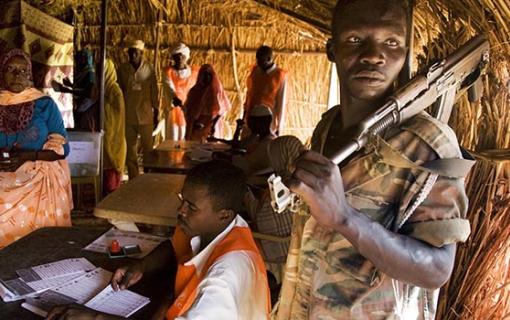Niger
Following the 2011 coup d'état against President Mamadou Tandja, Niger has held several presidential elections in the context of a deteriorating security environment.
Since 2018, IFES assisted Niger’s Independent National Election Commission (CENI) to prepare for and administer credible and inclusive local, legislative and presidential elections in 2020-21. IFES’ assistance included creating an inclusive biometric voter registry, training electoral officials and educating voters under the U.S. Agency for International Development-funded Niger Electoral Support Activity, which IFES implemented in coordination with the National Democratic Institute.
Niger held general elections over a three-month period from late 2020 to early 2021. High levels of political tension and polarization and a stalemate over electoral reforms dominated the pre-electoral period and illustrated the elections’ high stakes. The 2020-21 elections, which resulted in Niger’s first peaceful transfer of power from one president to the next, marked the third time since 2011 that Nigeriens went to the polls to directly elect their leaders. Despite an assault on the presidential palace by a small military contingent just days before inauguration day, President-Elect Mohamed Bazoum was sworn in as Niger's president on April 2, 2021.
Post-elections, IFES contributed to strengthening the CENI’s leadership capacity, supported the operationalization of the CENI’s 2020-24 Strategic Plan and facilitated the development of the Commission’s gender policy. To advance future elections-related priorities that the CENI identified through multi-stakeholder post-election evaluations, IFES trained the Commission’s personnel using the Building Resources in Democracy, Governance and Elections (BRIDGE) methodology; accredited the Commission’s own BRIDGE facilitators; and helped the CENI to institutionalize processes for inclusive community consultations and develop its Research, Monitoring and Evaluation department.

